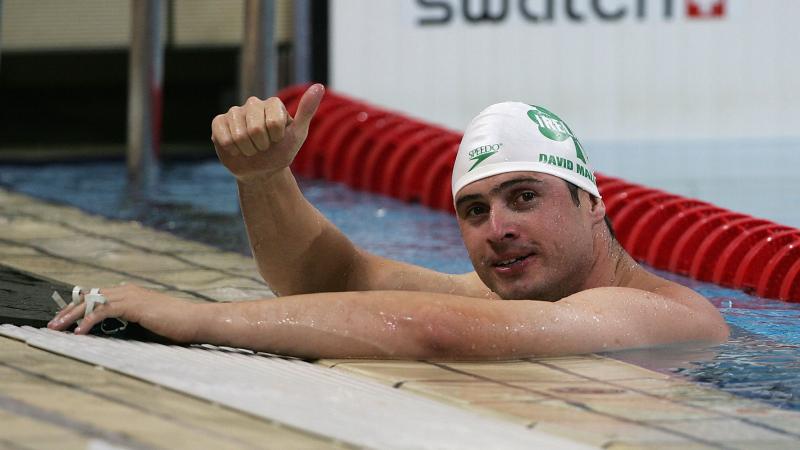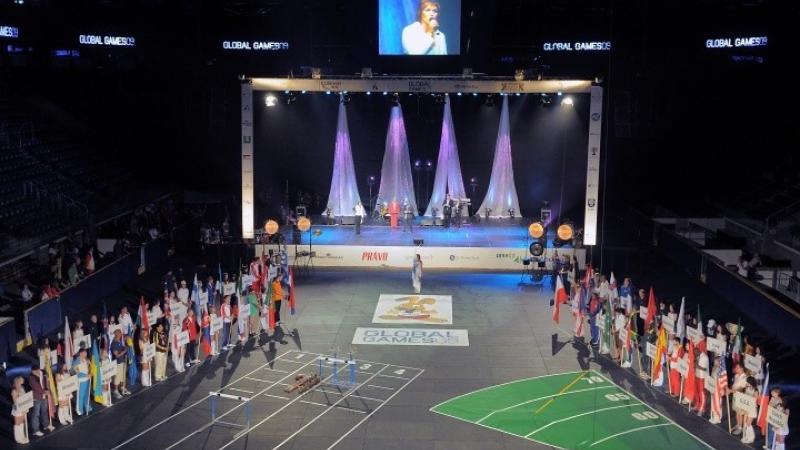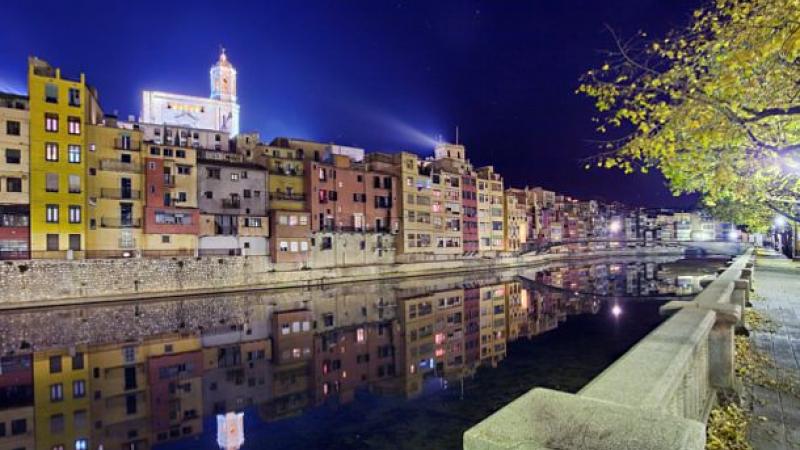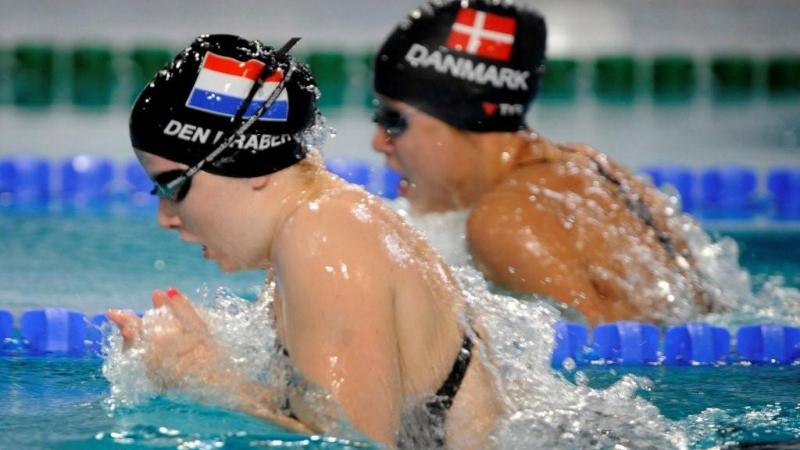Four German youngsters set their sights on Glasgow 2015
Four young German talents want to qualify for Glasgow 2015 on their road to the Rio 2016 Paralympics 12 Apr 2015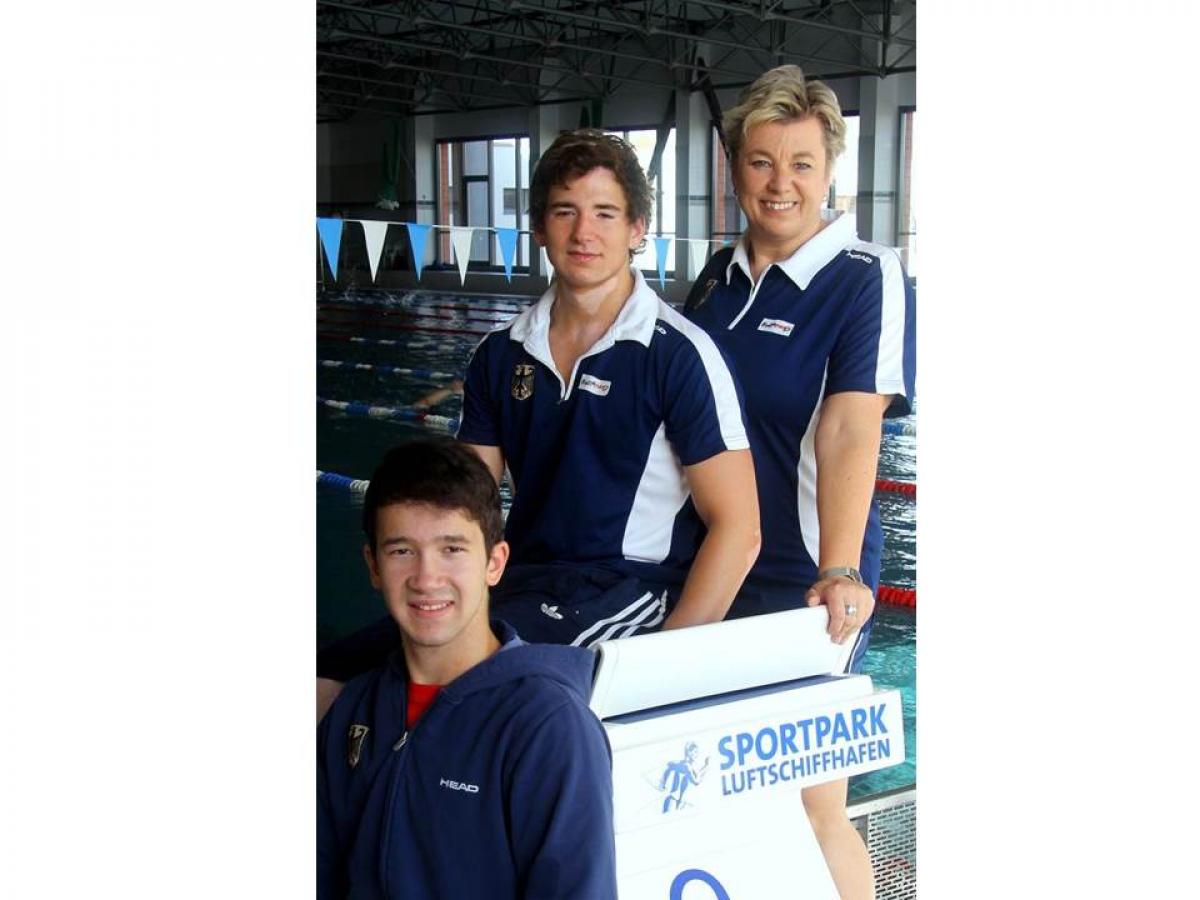
Julian Erxleben and Klaus Steinhauer are two of the youngsters who are aiming for Glasgow 2015 and Rio 2016.
“From a sport perspective, my focus will be the Paralympics in Tokyo in 2020, but I really want to compete in Rio to gain some experience,”
Four German youngsters are working hard to qualify for July’s 2015 IPC Swimming World Championships in Glasgow, Great Britain.
Julian Erxleben, Bastian Fontayne, Hannes Schürmann and Klaus Steinhauer all took part at the 2014 IPC Swimming European Championships in Eindhoven, the Netherlands, where all of them justified their nomination by reaching the finals.
They now want to make the next step in their young career, qualifying for the World Championships and then progress to the Rio 2016 Paralympic Games.
Erxleben has experienced the impressive atmosphere of a Paralympic Games at the London 2012 Paralympics, when he attended a youth camp held by the German National Paralympic Committee (NPC).
“I had goose bumps. Ever since my motivation has even been higher,” said the 18-year-old. “From a sport perspective, my focus will be the Paralympics in Tokyo in 2020, but I really want to compete in Rio to gain some experience,” he added.
25 hours of training per week
To reach this goal, he and his teammate Klaus Steinhauer train 25 hours a week at the Paralympic Training Centre in Potsdam. In addition to preparing for their high school graduation at the sport school in Potsdam.
“We have ideal conditions, otherwise high performance sport would not be possible and we could not train as much,” said Steinhauer. “I’m having fun, I see swimming as a positive compensation.”
Erxleben says that on some days it’s not so easy. “If the pressure at school and in the pool is too high, I feel a certain exhaustion. On the other side it’s the best preparation for life if you are able to handle that.”
Early mornings
A few hundred kilometres to the south west, the daily routine looks about the same at the Paralympic Training Centre in Leverkusen. Hannes Schürmann gets up at 04:40 on Wednesdays to take the train to Leverkusen; early training is on the agenda. “That means I’m in the water for around 1.5 hours before school,” says the 17-year-old. Another training session is scheduled from 18:00-20:00. “I’m not home before 21:00,” said Schürmann.
Bastian Fontayne moved to Leverkusen in November 2014. “That way I can combine school and sport better, and I have increased my training scope,” said the 18-year-old, who lost a leg in an accident in 2007. Before coming to Leverkusen, he was training with able-bodied swimmers at this home club in Siegen. In his new home town, distances are shorter and conditions are better. Fontayne is now hoping for another push in his development. “I am still too slow to compete against the top athletes in my class. But I know, I still have time.”
The four hopefuls will need patience and persistence on their way to the top. “The level is very high. A final at the World Championships is probably out of range this year,” said Steinhauer.
However, all four of them are confident that they can qualify for the World Championships.
The 2015 IPC Swimming World Championships will attract around 650 swimmers from 50 countries to compete at the Tollcross International Swimming Centre. It will be the biggest international swimming competition ahead of the Rio 2016 Paralympic Games.

 Facebook
Facebook
 Instagram
Instagram
 Twitter
Twitter
 Youtube
Youtube
 TikTok
TikTok
 Newsletter Subscribe
Newsletter Subscribe





